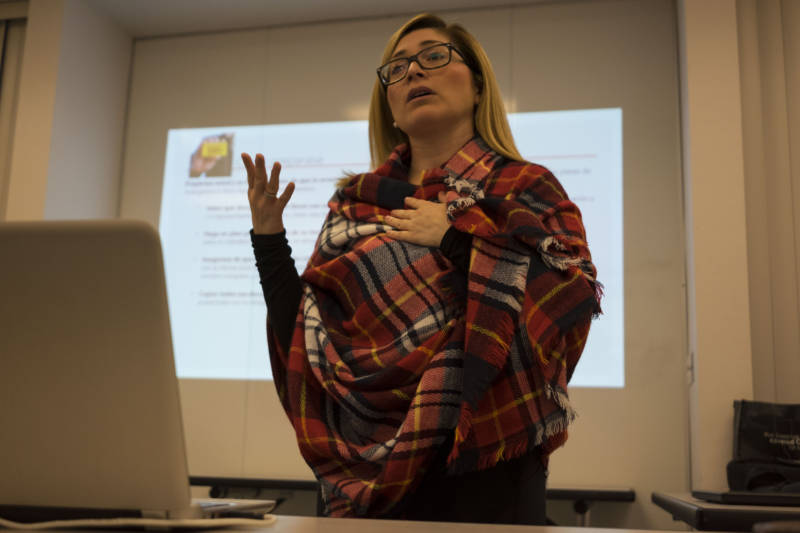But it's completely false.
With the exception of voting, traveling between states and running for president or Congress, the U.S. Constitution actually guarantees most of the same fundamental civil rights and liberties to everyone within the United States, citizens and non-citizens alike, including the estimated 11 million people living here unlawfully. That's at least how the Supreme Court has interpreted the Constitution for more than a century.
Immigration advocates have long tried to make this clear to undocumented residents, many of whom are unaware that they have any legal protections at all. This education effort ramped up noticeably after the election of President Trump, whose tough-on-immigration stance has heightened fears among communities wary of being targeted for deportation.
Attorneys and immigration rights advocates from organizations like the American Civil Liberties Union have been busy hosting "Know Your Rights” workshops around the country, an effort give immigrants advice on what to do if confronted by immigration enforcement officials.
Equal Protection
The legal rights of undocumented immigrants are largely grounded in the Equal Protection Clause of the Fourteenth Amendment, which explicitly guarantees equal protection of the law, not only to any U.S. "citizen," but also any "person" living within "its jurisdiction."
As far back as 1896, the Supreme Court reinforced this concept. “The Fourteenth Amendment to the Constitution is not confined to the protection of citizens," it ruled in Wong Wing v. United States. "These provisions are universal in their application to all persons within the territorial jurisdiction, without regard to any differences of race, of color, or nationality; and the equal protection of the laws is a pledge of the protection of equal laws.”
In other words, anyone living in the U.S. -- legally or not -- has constitutional rights, including the right to equal protection of the law and that of due process (fair treatment in the judicial system).
This principle was furthered by the High Court's 1973 decision in Almeida-Sanchez v. United States, which stated that non-citizens, regardless of legal status, are protected by the Constitution's criminal charge-related amendments, including search and seizure, self-incrimination, freedom of expression and trial by jury.
Under the Fourth Amendment, which protects against unreasonable searches and seizures, undocumented immigrants can deny law enforcement officers entry into their homes unless they have a valid search warrant or have been given explicit consent.
In the landmark 1982 Plyler v. Doe decision, the court further expanded this umbrella of equal protection, striking down a Texas statute that denied free public education to undocumented residents. The court ruled that Texas' law violated the Equal Protection Clause. All children, it concluded, regardless of immigration status, are therefore entitled to a free public education.
